
How to Use AI When Project Managing a Website: The Essentials
Key takeaways
- AI streamlines website project management by automating tasks and reducing manual work.
- Tools like Asana, Trello, Zapier, and Jira use AI for task assignment, reporting, and resource planning.
- AI improves communication, budgeting, QA, and reporting with forecasts, chatbots, and automated testing.
- Design and development speed up through AI-generated layouts, code suggestions, and optimization.
- AI-driven SEO tools enhance keyword research, content optimization, and performance tracking.
- Overall, AI boosts efficiency, accuracy, and decision-making across the entire website lifecycle.
Project managing a website is a complex process, and there’s no need to sugarcoat that. From overseeing the whole process of creating and launching a site to maintaining it later on to meet your goals, there’s a lot involved in the entire journey. That’s why effective project management is key to website development.
Tools have always been crucial in this process. However, with the rise of Artificial Intelligence and its use in various industries, AI tools have started to play a significant role in improving project workflows, efficiency, and outcomes.
That’s why my article will cover various practical ways to leverage AI for website creation and project management. I’ll cover several key areas like website task automation, budget and cost management, and design assistance, then discuss the tools you can use to improve each.
Bear in mind, though, that some of the tools won’t have AI, but I’ve chosen them because they can be significantly improved with third-party AI and automation tools, most notably Zapier and ChatGPT. Let’s begin.
{{cta}}
AI for Website Task Automation
AI-powered project management tools like Asana and Trello (Atlassian) can automate various repetitive tasks in website management. Both of them leverage AI internally and have features like:
- Smart task assignment — These tools can automatically prioritize tasks or match them to team members based on their skills. For instance, with Trello and its content automation tool Butler, you can create custom rules, workflows, and commands and automate tasks like moving cards, sending notifications, and assigning due dates.
- Real-time reporting — AI automation tools can visualize key metrics through comprehensive dashboards and send automated reports. Asana can automatically generate reports covering various aspects of your projects like project timelines and workload distribution. Many project managers find that a Quickbooks reporting dashboard provides essential financial visibility when tracking expenses and budget allocation across multiple website development phases.
Besides that, one of the most famous web automation software, Zapier, can do even more because it can be connected to various apps.
For instance, you can use it to connect your CMS, like Webflow, with social media platforms to automatically share new blog posts across chosen channels. You can also use it to connect Google Analytics with other apps to track your website traffic, conversions, and bounce rates.
Automating processes like task assignments and progress tracking can save time and resources, which can be spent on more important tasks. Gartner has already projected that AI will eliminate up to 80% of project management tasks by 2030. For those aiming to step into website project management roles, AI isn’t just transforming workflows, it can also streamline your job search. Using a free AI resume maker can help you craft a tailored, professional resume that showcases your ability to manage AI-driven tools, making you stand out to employers in the tech space.
AI for Resource Allocation
Predictive analytics, a major component in AI tools, can help allocate resources efficiently. For instance, they can:
- Anticipate traffic spikes or low traffic periods by looking into historical trends
- Forecast content needs by analyzing engagement
- Predict website maintenance requirements by analyzing performance data
- Trigger alerts on potential resource bottlenecks so you can take appropriate action on time
AI can also help teams by tracking workloads and optimizing team assignments. For instance, Jira can analyze each team member's skills and past performance and assign a task to the member best suited for it. To ensure maximum clarity and consistency in these assignments, many teams rely on well-defined Jira story templates.
Time management tools like My Hours, TMetric, Toggl Track, or Clockify can help you predict project timelines and reduce delays by analyzing past task durations to identify patterns and create more accurate estimates. They can also help you define task dependencies, showing which tasks must be completed before others can begin, which effectively identifies bottlenecks.
It’s worth noting that Clockify isn’t an AI tool, but you can easily automate with tools that leverage AI, like Zapier.
AI for Communication
To learn how to use AI when project managing a website, you should also consider how AI can improve communication.
For instance, AI-driven chatbots can be very helpful in streamlining client communication. Unlike human operators, chatbots can operate 24/7, providing reasonably detailed answers to frequently asked questions. They can even analyze past communications to adapt themselves to individual clients or collect valuable data that can be used in improving services.
You can also go further and more inward with large language models (LLMs) that can analyze communication patterns and highlight potential issues in team interactions.
Slack, which started as a messaging tool for small and large teams, has incorporated AI into its services. For instance, it can generate concise summaries of channel communications or even daily recaps. At the same time, Slack Huddles, with its AI features, can automatically capture important moments during voice and video calls.
AI for Budget and Cost Management
AI can be used to forecast project budgets and predict future costs based on historical data. You can even use it to monitor project costs to see how they are faring against your predicted budget. This will help you make necessary adjustments to keep everything on track.
Here are some tools that can track expenses and keep projects within the budget range:
- Planful — This tool uses AI to analyze historical financial data, locate trends, and generate forecasts. It also offers an interesting feature called Scenario Analysis, which lets you create what-if scenarios to predict the financial impact of various decisions, such as resource allocation and expenses.
- Cube — This financial planning and analysis (FP&A) tool uses AI to predict the financial impact of various strategies, analyze data, and generate forecasts. It can help teams collaborate and create reports you can use to improve your decision-making process.
- Productive — This AI-powered project management platform combines budgeting, forecasting, and expense tracking in one place. Its AI features automatically fill expense details from receipts and invoices, summarize deal progress, and generate real-time profitability insights. Productive also supports flexible budgeting models, rate cards, and phase tracking, helping teams stay on top of project costs and prevent overruns.
Overall, AI can help you identify financial risks early on by analyzing vast amounts of data to detect anomalies. It can also suggest mitigation strategies based on risks it identifies that are specific to your company.
AI for Quality Assurance
When you want to use AI for website creation, you can also employ it in various quality assurance processes, like automated testing for website performance.
AI can analyze website code and historical data to create test cases covering different scenarios, so you don’t have to do this manually. It can also analyze performance data like page speed metrics and load times to find issues.
AI can also ensure consistent quality across different browsers. It can automate tests across various browsers but also devices and operating systems.
DeepCode (now Snyk) is a good example, as it was a significant player in this space. Now, it powers Snyk and can detect vulnerabilities in security and code quality issues like bugs and code smells. It can even provide real-time feedback.
AI for Reporting and Insights
AI can now be used to generate project reports automatically, which summarize key metrics and project updates, saving you valuable time. It can also generate actionable insights like personal recommendations based on analyzed data and automated alerts when it detects issues like website performance degradation or budget overruns.
Tools that can help here include:
- Wrike — It can generate automated reports based on custom configurations, and you can even schedule them to be delivered to stakeholders regularly. The AI Wrike uses does this by analyzing data and presenting various trends and patterns within dashboards and reports.
- Smartsheet — The tool can help you generate a wide range of custom reports that can be customized based on what stakeholders want to see. Smartsheet can also generate pivot tables and Gantt charts.
- Monday.com — The AI this popular tool uses can analyze vast amounts of data to find issues, predict risks that stem from them, and offer the best solutions. You can then present all this in dashboards and reports so stakeholders can make informed decisions.
As many as 73.5% of managers state that data always drives their decision-making, showing the importance of using data in project management. Moreover, as many as 40% of companies worldwide use big data analytics, and this percentage is likely to continue rising.
AI for Design Assistance
Various AI tools are capable of analyzing your website and those of competitors while looking into design trends and user preferences, all of which lead to suggestions on layouts, color schemes, and other design elements.
As always, you can use these tools to automate various tasks, like image optimization, layout generation, and even code generation. You can convert design mockups into CSS and HTML code, speeding up the design process and reducing errors.
A good example of an AI-driven design tool is Figma AI, which goes much further by generating design layouts based solely on your inputs. It can also integrate with project management tools and automate tasks like removing backgrounds from images and detecting potential design errors.
Other tools handle more specific needs. For instance, Khroma can help you generate color palettes based on your preferences, while Let's Enhance uses AI to upscale and enhance images.
AI for Web Development
AI can also be used to create websites through tools that streamline the development process, including coding, debugging, and testing.
For instance, tools like GitHub Copilot can predict and suggest the next line of code you should use or fix existing code with errors. Just look at what generative AI can do for low-code or no-code development.
AI algorithms can analyze code to find bugs and even predict them based on historical data and patterns within the code. You can also save time on testing because AI can generate test cases to check a website's performance and identify bottlenecks.
AI tools can also improve CMS platforms, like Webflow, which has already introduced AI features to automate design elements and content creation. The popular AI website experience platform also has a full AI Assistant, which you can use to get help and ideas while building your site.
Using AI tools in website development can significantly save time and even improve project outcomes since you can both generate code and fix errors.
AI for SEO
AI tools have become a major part of the workflow of many SEO professionals, helping them with data analysis, website ranking improvement, and content optimization.
They can:
- Analyze search trends, competitor data, and user behavior to find relevant keywords and even predict their performance
- Help with link building by identifying opportunities and checking the quality of links
- Improve technical SEO by performing website audits and assisting you in implementing structured data markup on your site
- Help with SEO content, like utilizing ChatGTP to get assistance in research and writing
AI tools can be crucial in monitoring your search rankings for various keywords. They can also provide insights on how to improve. That’s because they analyze a wide range of factors to accurately identify areas for improvement.
For example, Semrush uses AI features to help users with content analysis, competitor analysis, and keyword research. SurferSEO analyzes top-ranking pages to deliver content optimization recommendations.
{{cta}}
Bottom Line
As you can see, AI is effectively revolutionizing website project management by improving your speed and efficiency, enabling data-driven decision-making, improving the accuracy of tasks and reducing errors, optimizing resource allocation, and so much more.
The tools I’ve discussed here are just the tip of the iceberg of what you can do with AI in website project management. You should explore them more to see how they can improve your project needs.
If you feel overwhelmed by this or want to learn more and get assistance with managing a website, contact Flow Ninja. You can book a free 30-minute call to learn how we can help you grow your project.
Frequently Asked Questions
How can AI tools like Asana, Trello, and Zapier streamline website project management tasks?
AI-enabled tools such as Asana and Trello automate task assignment, reporting, and workflow rules, while Zapier connects your CMS, analytics, and communication apps to remove manual handoffs. Together, they reduce repetitive work, centralize updates, and free project managers to focus on strategy and high‑impact decisions.
What is the role of AI in resource allocation for website development teams?
AI uses predictive analytics to anticipate workload, traffic spikes, and maintenance needs, then aligns tasks with team members’ skills and past performance. Platforms like Jira and Clockify help forecast timelines, surface bottlenecks, and optimize assignments so teams stay balanced and projects progress on schedule.
How can AI improve budget planning and financial oversight in website projects?
AI-driven financial platforms like Planful, Cube, and Productive analyze historical spend, detect anomalies, and forecast future costs. They support scenario modeling, real-time profitability insights, and automated expense tracking, helping you keep projects within budget and adjust resourcing before overruns occur.
Which AI capabilities are most useful for website quality assurance and security?
AI can auto-generate test cases, run cross-browser and cross-device checks, and analyze performance metrics like load times to find issues. Solutions such as Snyk’s DeepCode detect vulnerabilities, bugs, and code smells in real time, improving site reliability, security posture, and overall code quality.
How do AI-powered design tools assist with creating and optimizing website layouts?
Design tools like Figma AI can generate layout variations, spot potential design issues, and automate tasks such as background removal. Specialized tools including Khroma and Let’s Enhance create color palettes and upscale imagery, helping teams quickly align visuals with brand guidelines and usability best practices.
In what ways can AI support website development and low-code or no-code workflows?
AI coding assistants like GitHub Copilot suggest code, refactor scripts, and help debug errors, while platforms such as Webflow AI automate design elements and content creation. These capabilities accelerate development, reduce manual coding, and make sophisticated websites more accessible to low-code and no-code builders.
How can AI enhance SEO strategy and execution for a newly launched website?
SEO platforms leveraging AI, such as Semrush and SurferSEO, analyze search trends, competitors, and top-ranking pages to recommend keywords, content structures, and optimization improvements. They also support link prospecting, technical audits, and performance monitoring, enabling continuous refinement of your organic growth strategy.
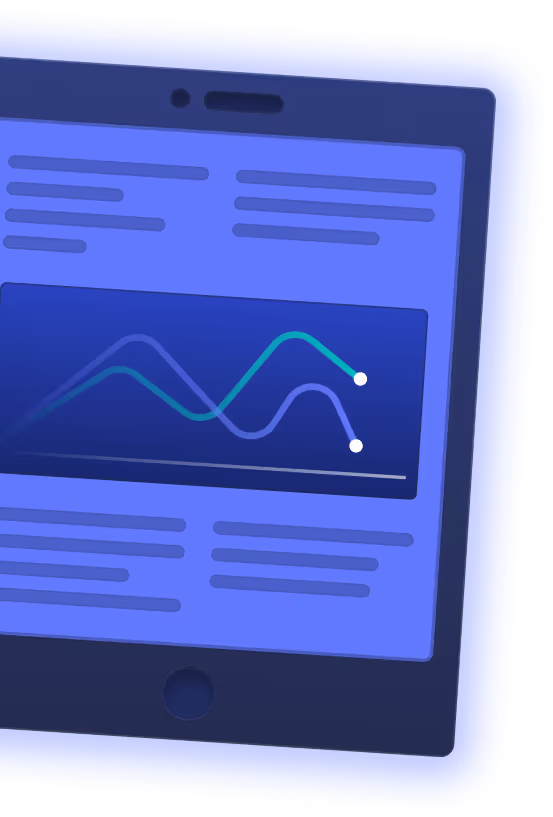
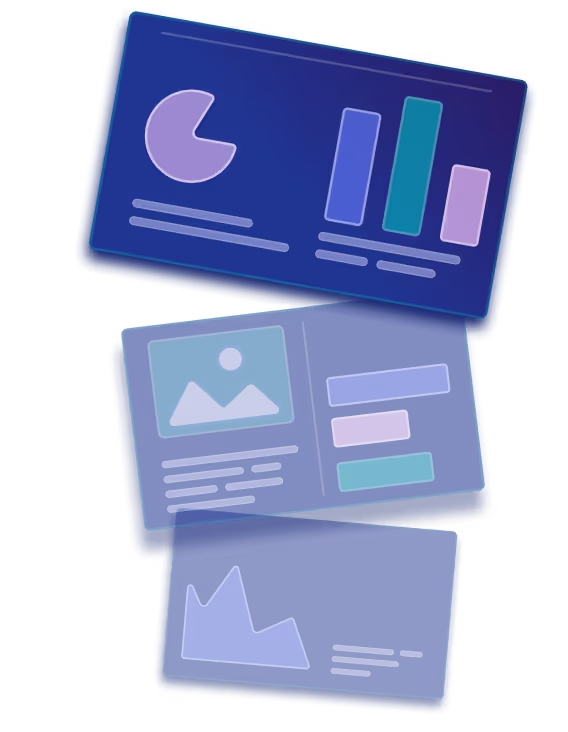
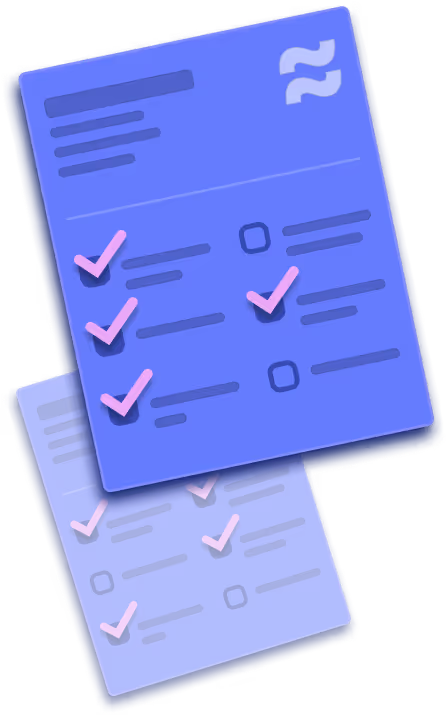
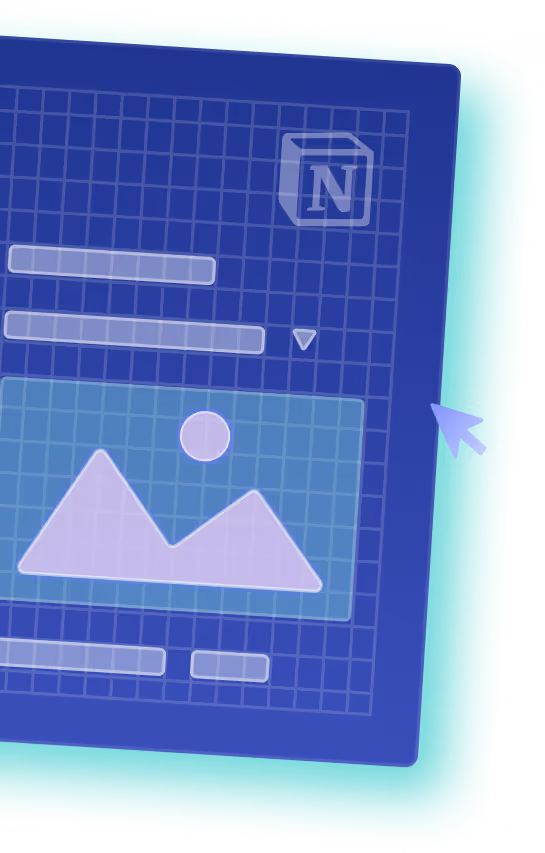
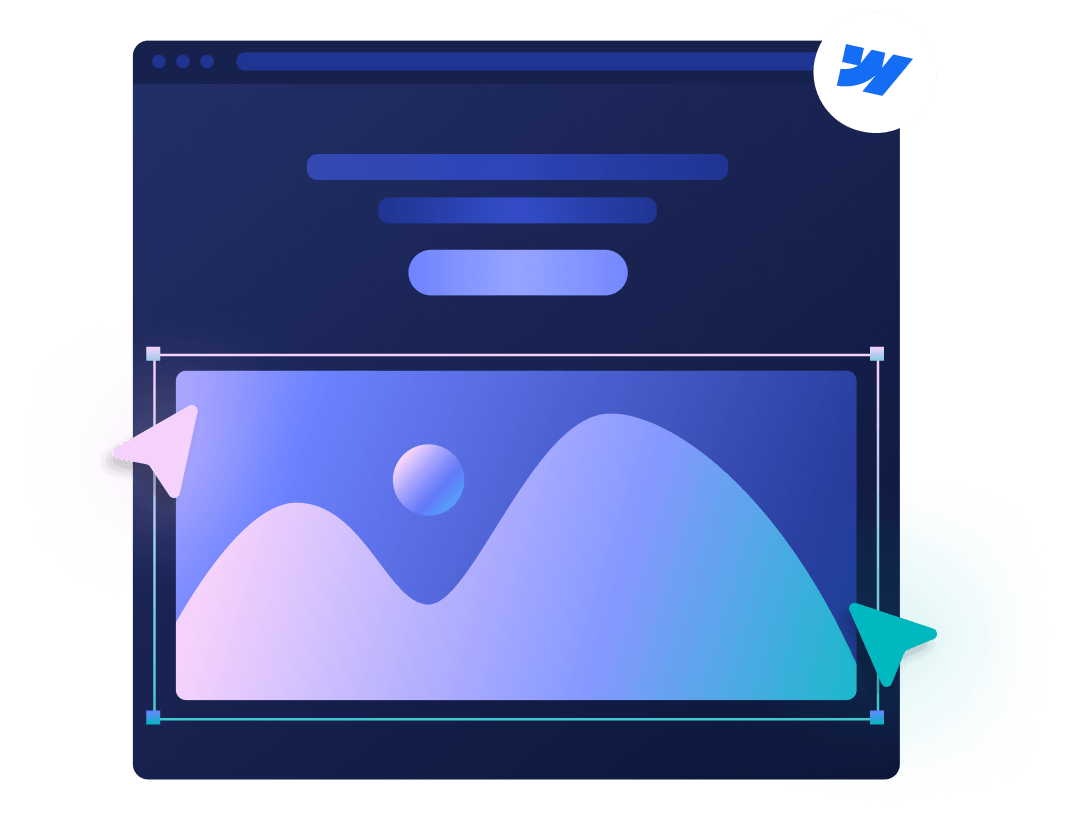

.svg)










-min.png)
.jpg)




.png)
.png)
.png)








.svg)

.png)
.png)
.webp)
.svg)

